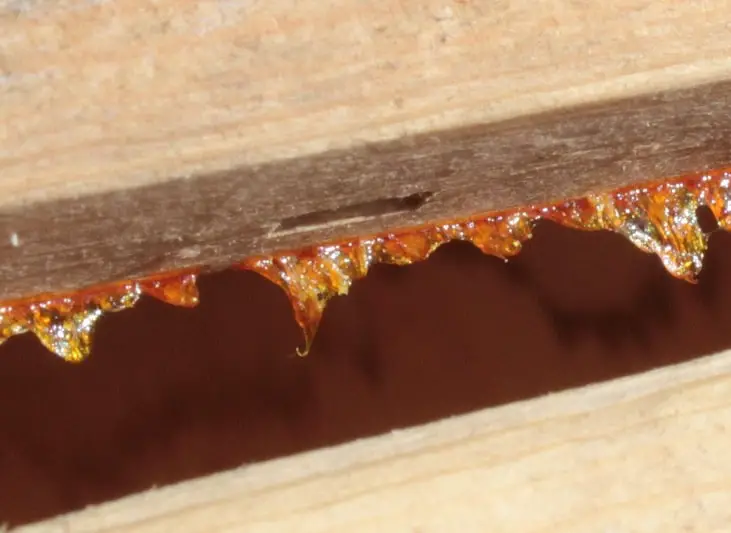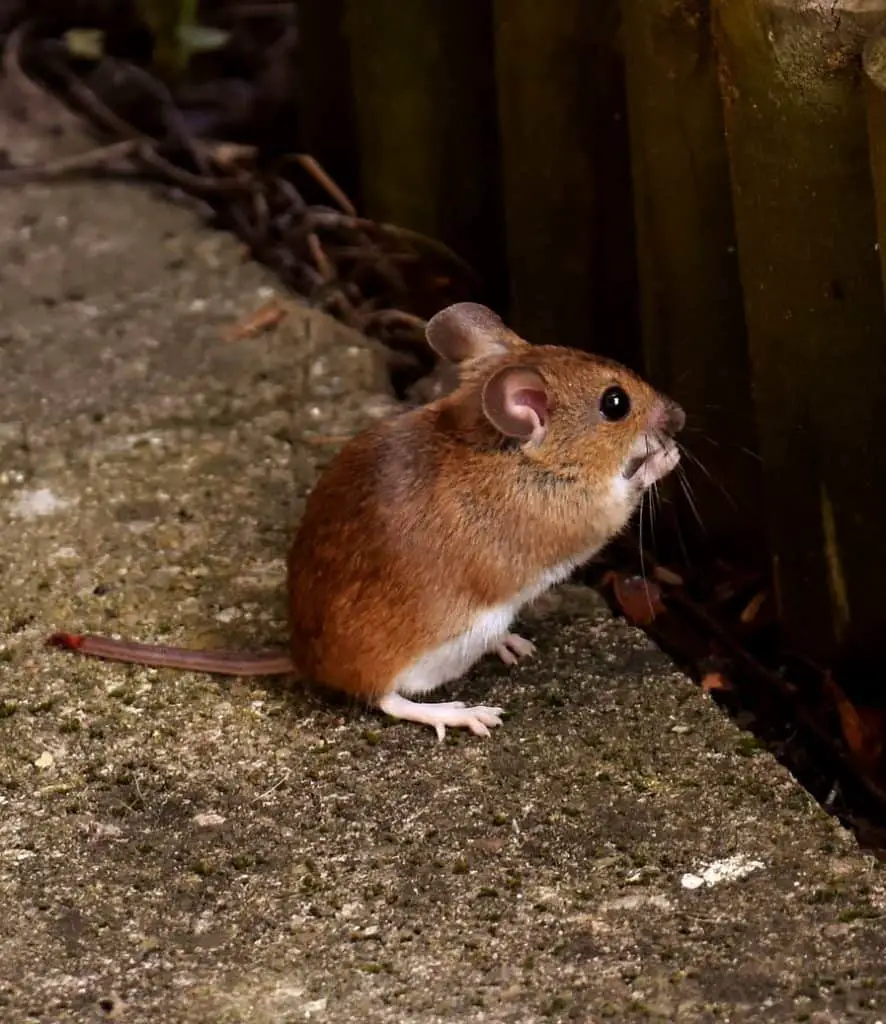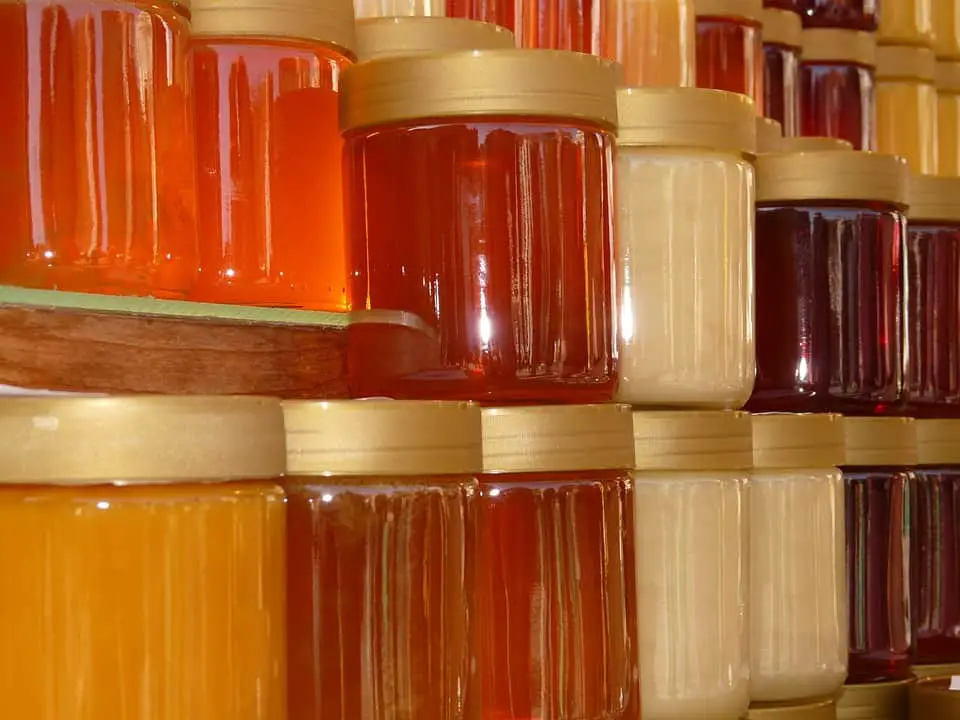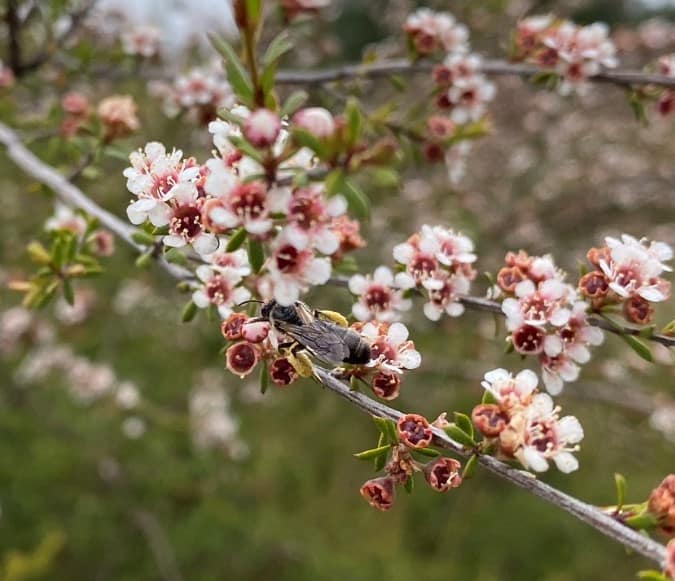Health Benefits of Propolis
Everything you should know about propolis

Propolis – also called “bee glue” – on hive frames
What is propolis?
Besides Honey, bees also produce another specialty that is used a lot in alternative medicine, Propolis.
The word derives from Greek and means: ‘defender of the city’. The word “city” represents the bee hive and the magnificent defensive virtues of propolis show why this name is more than justified.
It is also said to be the “immune system of bees“:
Since bees do not have an immune system like we have, they produce this kind of “bee glue” to keep the hive clean !
Propolis is a thick, sticky substance that is formed by bees after the collection of resin from trees.
Bees mix it with saliva and bee wax and form a kind of glue that serves primarily to fill any gaps of the hive and coat the hive from inside.
As the substance gets very sticky and hard when it is a bit cooler, it can become tougher to open and close the beekeepers hive frames.
This glue is used by bees as a natural antibiotic1 and protects the hive from any kind of bacteria. Bees produce it also to avoid the spreading of bacteria and fungi.
For example, it might be used when a larvae predator (like a mouse for instance) enters the hive.
Imagine a hungry mouse stepping into a bee hive in search for delicious unborn worker bees full of proteins.
How would bees think about that? Of course, by defending their offspring!
Imagine hundreds of bees using stinging the mouse to death. But, what now?
Now they have a heavy mouse cadaver inside the hive!
Relax, humans.
Bees have the solution. They just cover the mouse with… propolis. They balm the mouse like ancient Egyptians would do with their mummies! In this way, they can protect the hive from dangerous bacteria of the dead body.

To explain the power of propolis, let’s imagine a mouse trying to steal the larvae of a bee hive..
Bees also use the sticky glue to improve the structural stability of the hive and to seal its entrances. Propolis helps defending the hive against the growth of bacteria and fungi, but serves to seal little cracks as well2.
It also prevents any other parasites and diseases to come into the bee hive and stops them from spreading.
Propolis and health properties for humans
Propolis is used in the health industry as it believed to have many benefits for our bodies.
Many creams, sprays, chewing gums and cosmetics contain propolis.
The substance, also known as “Russian penicillin”, is said to be one of the most effective antibiotics ever discovered by human kind. It has been used for centuries by many cultures for its antiseptic, antimicrobial and detoxifying properties3.
We can use it to heal or prevent:
- Colds and flus: Do you want to defend your body against colds or flus? Five to seven drops of propolis solution in a glass of milk /soy milk can strengthen your immune system and stop flus from breaking out. Do you often suffer sore throat? Propolis is also a common remedy for sore throats.
- Skin problems: Propolis solution is known as a healing substance for skin irritations, blemishes or infections. Next time you have this nasty spot on your nose, put a drop of propolis solution on it and let it dry during the night!
- Teeth and mouth problems: In ancient times, propolis has been applied as dental sealant for tooth decay. Used as a mouthwash, propolis can prevent bad breath, gingivitis, tooth decay and gum disease.
- Wounds: Although propolis has been used already by the Romans, Greek and Egyptians for minor wound treatments, Western scientists only confirmed its healing effect about 20 years ago. Today, in many countries where antibiotics are not widely available, it is a common to use propolis to heal a wide variety of wounds. If applied as antiseptic wash or salve, propolis can prevent the growth of bacteria in cuts and burns and it can also promote the healing process in lesions of the skin that have not healed4.
How do beekeepers collect and preserve propolis?
As described above bees spread propolis in the whole hive, at the entrance and between frames.
As it has many great benefits for humans as well it is interesting to know what we can gather propolis and use it for ourselves.
If you are a beekeeper yourself you should know that bees collect propolis mainly in spring and autumn, so it should best be collected during these periods.
To collect propolis many beekeepers use a thick plastic foil and cover the brood and the edges of the honeycomb frames5.
When bees load the honey into the frames they use propolis to seal the gaps between the frames and doing this pile propolis on the plastic foil. Thanks to the plastic foil the propolis can easily be collected; this should be done every 10 days.
The collected propolis is often solved and sold in alcohol but it can also be used in solid state.
To preserve the alcohol, it can be put in a glass bottle or jar until it is about half full, then you can fill up the vessel with 96% alcohol.
Once this is done the glass needs to be shaken and then left for a couple of days or weeks. After shaking it again you can filter the content of the bottle to remove the waste.
This purified solution can then be used.


